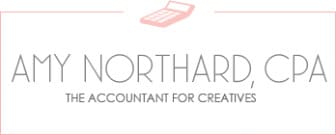If you’re a small business owner, you’re likely working tirelessly to grow your company.
As your business expands, you’ll want to carefully consider whether it’s time to hire your first employee. In today’s post, we’ll explore ten questions you should ask yourself before hiring your first employee.
Is your business poised for growth?
Whether you’re hiring your first employee or your 100th employee, the decision to make a new hire should be based on projections and not just the balance sheet. You need to look at your current numbers but also your projected growth for the coming year when making this decision. If you’ve put the processes in place for your business to grow but don’t have the people there to make it happen, then you’re not setting your business up for success.
Are you turning down business because you are too busy?
If you’re constantly turning down new business opportunities, that could be a sign that it’s time to hire your first employee. Turning down work can be frustrating, but it can also be an indication that your business is growing faster than you can manage on your own.
Do you have the systems in place to have the new employee immediately start work or will this create even more work for you that you won’t be able to manage?
If you will have to devote time to training your new hire, you need to make sure you have the time to dedicate to this. If you don’t have the time to train someone, then you might consider putting a plan in place to create processes, systems, manuals, classes, or training that can be used for onboarding. Also, there will obviously always be more required of you initially when hiring an employee, so think about the best time of the year for you to bring a new hire up to speed.
Are you feeling overwhelmed?
If you’re feeling like there just aren’t enough hours in the day to get everything done, it might be time to consider hiring your first employee. When you’re constantly working long hours and struggling to keep up with the demands of your business, it can be challenging to make progress. By hiring an extra set of hands, you can free up some time and focus on growing your business.
Do you know how much your new employee will earn?
Before even considering hiring a new employee, you’ll want to make sure your business can afford to pay that employee what they deserve. Research the market value for similar positions in your geographic region. You can expect total costs for your new hire to be around 1.25x the base salary.
Is your business making enough money to invest in an employee?
When you first start your business, it’s important to keep your expenses low. However, as your business grows and becomes more profitable, it might be time to invest in hiring your first employee. Notice I said “invest.” Remember that employees are investments and not expenses.
However, you need a strong cash position to hire an employee. If you have 10-30% of projected expenses on hand and are certain you can pay for an employee’s salary, benefits, and other expenses, then you can consider the new hire to be a smart investment.
Are you missing out on key opportunities?
If you’re struggling to keep up with the day-to-day tasks of running your business, you might be missing out on bigger opportunities as well. For example, you might not have time to attend networking events, follow up with potential clients, or explore new marketing channels. Hiring an employee can help you free up some time so you can focus on the bigger picture.
Do you need to hire someone with specialized skills?
If you’re finding that you need specialized skills that you don’t have, that’s another reason to hire your first employee. For example, if you’re a graphic designer but need help with website development, you might consider hiring a web developer. Bringing on an employee with specific skills can help you grow your business and take on new projects.
Have you defined the role and do you have clear expectations?
Before posting the job or putting out feelers, make sure you have clearly defined the role you’re looking to fill. What tasks and responsibilities will the employee have? What skills and experience do they need? Defining the role can help you create a job description and attract the right candidates.
It’s also important to be clear about your expectations for the position. What are the goals for the role? What are the performance indicators you’ll be tracking? By setting clear expectations, you can ensure that you and your future employee are on the same page.
Does it make more sense for your business to hire an employee or a contractor?
If you’re not quite ready to commit to hiring a full-time employee, consider hiring a contractor. Contractors can be a great way to get the extra help you need without the long-term commitment of a full-time employee. However, be aware that contractors are typically more expensive than employees, so factor that into your decision. You may also want to speak to an accountant about the tax implications for hiring an employee rather than a contractor.
Hiring your first employee can be an exciting step for your business, but it’s important to make sure your business is financially ready and that you take the time to find the right person for the job.
If you have a minute, you may also be interested in these related articles:

